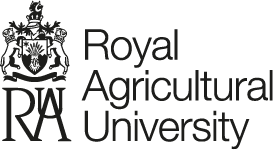What does ‘co-production’ look like for food system transformation? Mapping the evidence across Transforming UK Food Systems (TUKFS) projects
Shaw, Naomi, Hardman, Charlotte, Boyle, Neil, Craven, Joanne, Dooley, John, Mead, Bethan, Morgans, Lisa C, Mumby, Hannah and Pettinger, Clare (2024) What does ‘co-production’ look like for food system transformation? Mapping the evidence across Transforming UK Food Systems (TUKFS) projects. Nutrition Bulletin, 00. pp. 1-15. ISSN 1467-3010
|
Text
Shaw etal 2024 - What does co-production look like for food system transformation - Mapping evidence across TUKFS Projects.pdf - Published Version Available under License Creative Commons Attribution. Download (608kB) | Preview |
Abstract
Co-production is a collaborative way of working which emphasises the exchange of diverse forms of knowledge in an equal partnership for equal benefits. Co-produced research is a key strategic aim of the UK Research and Innovation (UKRI) Transforming UK Food Systems (TUKFS) Strategic Priorities Fund; this research programme brings together researchers, policymakers, industry and communities to create positive change in the way food is produced, accessed and consumed. However, more generally, there are diverse understandings of co-production and a lack of consensus on what ‘good practice’ looks like. Therefore, this study aimed to identify and map examples of co-production methods employed across the TUKFS programme. Two creative workshops (n = 15 participants), conversations with TUKFS researchers and stakeholders (n = 15), and systematic analysis of project documents were used to critically explore co-production activities within six TUKFS projects. A range of co-production activities were identified. Findings highlighted areas of ‘messiness’ and complexity, challenges associated with applying co-production approaches and practical solutions. Four key shared principles for co-production were identified: (1) Relationships: developing and maintaining reciprocity-based partnerships; (2) Knowledge: recognising the contribution of diverse forms of expertise; (3) Power: considering power dynamics and addressing imbalances; and (4) Inclusivity: ensuring research is accessible to all who wish to participate. Opportunities for reflection and reflexivity were considered crucial across all these areas. Findings contribute important insights towards a shared conceptual understanding of co-production for food system transformation research. This paper makes recommendations for researchers, practitioners, academic institutions and funders working in this area of research and practice.
| Item Type: | Article |
|---|---|
| Keywords: | Co-production, creative methods, food system transformation, participatory research, stakeholder participation |
| Divisions: | Agriculture, Science and Practice |
| Depositing User: | Dr John Dooley |
| Date Deposited: | 15 Jul 2024 09:05 |
| Last Modified: | 04 Oct 2024 09:46 |
| URI: | https://rau.repository.guildhe.ac.uk/id/eprint/16770 |
Actions (login required)
 |
Edit Item |

